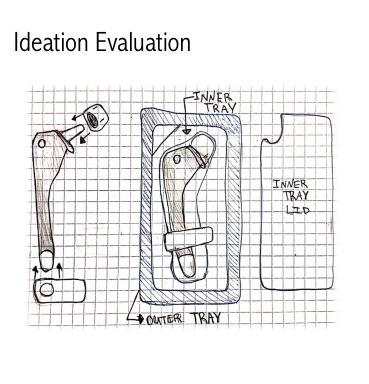May 22, 2018

In collaboration with Clemson University’s Department of Food, Nutrition and Packaging Sciences, Eastman (Kingsport, TN) completed its first semester as a corporate sponsor of Dr. Robert Kimmel’s fall 2017 Package Design and Development course, considered the “capstone” of Clemson’s undergraduate Packaging Science curriculum.
“We have long been aware of Eastman’s preeminent position as a supplier of key materials used in medical device packaging,” said Kimmel. “We were therefore delighted to work with Eastman’s medical device packaging team to provide an opportunity for interested students to work on a medical device packaging project and to help us understand the technical and marketing requirements of this industry segment.”
The course offered students a window into a medical packaging design career while providing Eastman an opportunity to build relationships with academia and future design engineers. Along with funding, Eastman contributed polymer expertise specific to medical packaging, market experience and knowledge of industry standards.
“Collaboration is part of our fabric at Eastman,” said Aneta Clark, global market segment leader, who served as Eastman’s sponsorship liaison. “When Dr. Kimmel expressed interest in our participation, we felt we could contribute to the learning process and leverage Eastman’s years of expertise in this area. Once the objectives for the project were set, we moved to outline the project scope.”
Prototype rigid medical package system
This involved the design and fabrication of a prototype rigid medical package system to accommodate various sizes of orthopedic hip implants. The students began by conducting ethnographic research at a local hospital and then moved into the ideation phase, keeping in mind requirements for sterilization, shelf-life requirements, shipping and distribution.
The students worked under the guidance of Eastman medical packaging technical expert, Gary Hawkins. “We outlined the project to allow the participants to experience as many facets of design and testing of medical packaging as possible. Although extensive validation was not possible due to semester timeline constraints, we were impressed with the level and quality of work completed by the team,” said Hawkins.
A performance and regulation-driven industry, rigid medical packaging sits at the intersection of safe medical product delivery and forward-thinking industrial design, providing an excellent opportunity for industry to partner with academia. A growing number of Clemson packaging students are seeking and finding employment in the medical industry.
“We have a strategic objective to expand our teaching and research efforts in health care and add faculty and laboratory capabilities to support these efforts. We are confident that the collaboration that we developed with the Eastman Medical Packaging team will be extremely valuable in supporting our strategic goals in health care packaging,” says Kimmel.
Eastman and Clemson will continue their partnership in fall 2018 with a new team of students. Project work will resume with a focus on validation and testing. Eastman and Clemson hope to engage other value chain partners as additional program sponsors.
About the Author(s)
You May Also Like


